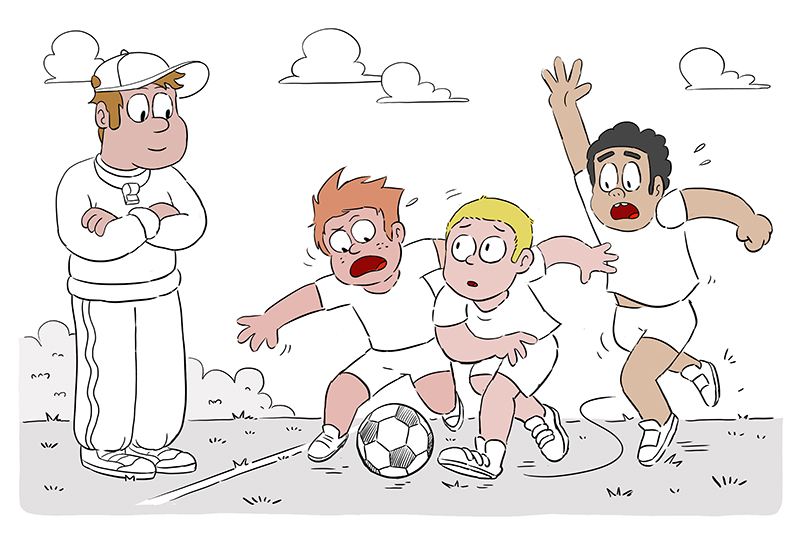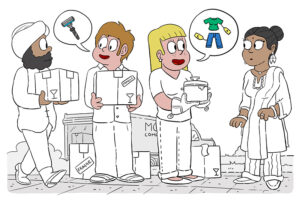
Alexei loves playing soccer. In Novosibirsk, his old hometown in Russia, he was already playing league with six-a-side. His parents are proud, he has talent, and when they came to the Netherlands his father immediately signed him up with the best club in the place where he works and hopes to find housing. Alexei is assigned to JO14, premier league. With a successful coach.
“When we left Novosibirsk, I missed my soccer friends very much,” says Alexei. He was happy when his father signed me up at a new club, saying that he was a good player and that the coach would soon see this too.
During training pots, Alexei waits for instructions from the coach. The lineup was clear, but then he hardly gives any instructions! He stands on the sidelines with his arms crossed. “The other guys on the field did say a lot to each other. They really yell all the time, including at me. They criticize each other all the time! My dad said I should show more individual solo actions, then they wouldn’t react so vehemently anymore. But then it only gets worse! Gee, I love soccer, but this really isn’t fun anymore.”
The coach is happy with Alexei. “It’s going fine, the boy is playing well and doesn’t need a lot of instructions. It’s a talent team, there are a lot of guys in there who see what needs to be done. Sometimes it seems like he gives up and he can’t take criticism.”
Where is the connection?
Alexei was used to getting specific instructions from the coach. He waits for his instructions and always looks at the coach to see if he is missing something. But the coach is quiet and calm and lets the players on the field “coach” each other, and these are often direct comments. In Alexei’s eyes, sometimes even painful. The coach wants players on the field to show initiative. He wants players to improvise and help and coach each other.
There is a big difference in how we form a team in the Netherlands and how it is done in other cultures. There is a boss, the team coach, and a sub-boss, the captain. But they shouldn’t be too proud. The coach has the best overview and a plan, but counts on the individual players to execute it well and coach each other. Typical of an egalitarian and I society.
Then Alexei is also told that here in the Netherlands we should above all not have any kapsones. In the Netherlands we are motivated by team performance, not individual heroics.
It is quite contradictory. Per capita, we often have the most Olympic medals. So we can perform, but on our terms: own initiative, coaches and players without airs and graces, working hard but choosing for ourselves at times.
Meanwhile, Alexei needs to get used to his new surroundings. That will happen quickly enough at his age. Also in this story is that direct, to Alexei blunt, communication. They are not meant to hurt. The coach has a nice job and can focus specifically on Alexei by bringing him into his and the Dutch style of coaching and team sports.
If Alexei understands that and becomes motivated again then they will have a very good one with him! He brings two cultures together.
Want to read more about culture dimensions?
Important to know
This anecdote is based on stories shared with us. Connect2Us strives to highlight the dilemma from both sides and not to label people or suggest that one or the other should behave differently. We see in our daily intercultural work that awareness by those involved is enough to move toward each other without pretending to be very different. Connect2Us aims to help readers recognize and avoid prejudice. Read about prejudice, discrimination and racism here.

